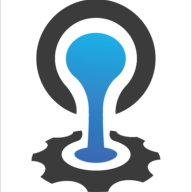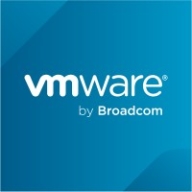

Cloud Foundry and VMware Tanzu Platform compete in cloud-native application development. VMware Tanzu often has the upper hand due to its advanced features and enterprise appeal.
Features: Cloud Foundry supports continuous deployment and scalability with a focus on a developer-friendly experience, application portability, and multi-cloud support. VMware Tanzu Platform offers advanced Kubernetes integration, unified cluster management, and comprehensive cloud management tools, appealing to enterprises.
Ease of Deployment and Customer Service: VMware Tanzu emphasizes Kubernetes-based deployment with extensive documentation and enterprise-grade support. Cloud Foundry offers a developer-centric deployment but requires more infrastructure investment. Tanzu provides an expert support ecosystem, whereas Cloud Foundry focuses on straightforward deployment.
Pricing and ROI: Cloud Foundry typically presents lower initial setup costs and a more attractive ROI for cost-efficient businesses seeking scalability. VMware Tanzu might have higher upfront costs, but its features enhance long-term ROI for companies prioritizing advanced cloud solutions.
| Product | Market Share (%) |
|---|---|
| VMware Tanzu Platform | 3.6% |
| Cloud Foundry | 2.4% |
| Other | 94.0% |


| Company Size | Count |
|---|---|
| Small Business | 10 |
| Midsize Enterprise | 3 |
| Large Enterprise | 10 |
Cloud Foundry, home of the open source application development technologies CF Application Runtime and CF Container Runtime, is more than a platform. It’s a flexible way of embracing digital transformation that helps businesses evolve in the face of constant change. To put it another way, with Cloud Foundry, companies can rest assured they will have the right tool for the right job.
VMware Tanzu Platform is designed for cloud-native development and management of Kubernetes, CI/CD processes, microservices, and containerized workloads. It supports deployments both on cloud and on-premises, providing centralized management via Mission Control.
VMware Tanzu Platform offers seamless integration with vSphere, ESX, and vSAN, supporting centralized cluster management and lifecycle management. The platform provides a GUI for monitoring CI/CD pipelines and network policies, enhancing multi-tenancy and Day 2 operations. Users can easily manage Kubernetes clusters, monitor applications, and integrate with tools such as GitHub, GitLab, Cloud Foundry, and Azure. It ensures compliance and security for service providers, financial institutions, and businesses.
What are the key features of VMware Tanzu Platform?
What benefits and ROI should users look for in VMware Tanzu Platform reviews?
Industries such as financial institutions, service providers, and businesses requiring rigorous compliance and security deploy VMware Tanzu Platform. These entities benefit from centralized management, streamlined DevOps processes, and integrated tools, enhancing their capabilities in cloud-native developments and containerized workloads.
We monitor all PaaS Clouds reviews to prevent fraudulent reviews and keep review quality high. We do not post reviews by company employees or direct competitors. We validate each review for authenticity via cross-reference with LinkedIn, and personal follow-up with the reviewer when necessary.